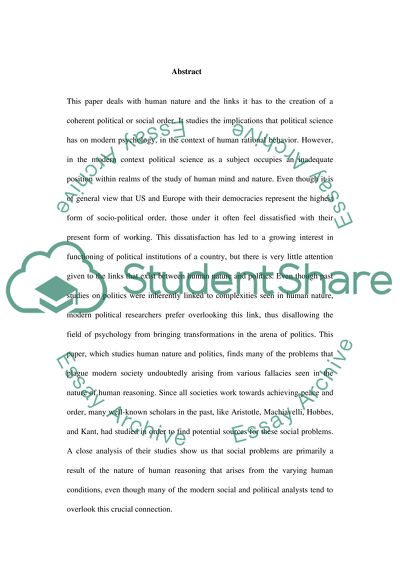Cite this document
(“Human nature and politics Dissertation Example | Topics and Well Written Essays - 3500 words”, n.d.)
Retrieved de https://studentshare.org/politics/1391812-human-nature-and-politics
Retrieved de https://studentshare.org/politics/1391812-human-nature-and-politics
(Human Nature and Politics Dissertation Example | Topics and Well Written Essays - 3500 Words)
https://studentshare.org/politics/1391812-human-nature-and-politics.
https://studentshare.org/politics/1391812-human-nature-and-politics.
“Human Nature and Politics Dissertation Example | Topics and Well Written Essays - 3500 Words”, n.d. https://studentshare.org/politics/1391812-human-nature-and-politics.


